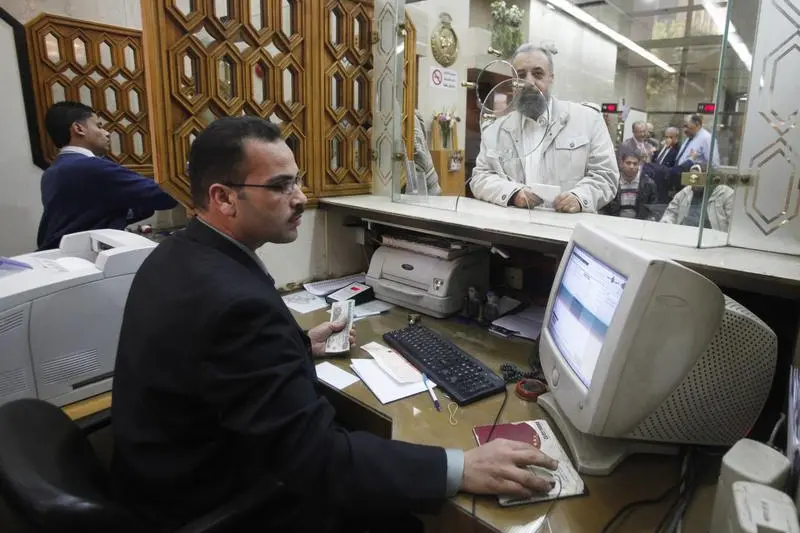PHOTO
Egyptian banks’ net foreign assets should continue to recover following the devaluation of the Egyptian pound due to a boost to foreign investor confidence from a more flexible exchange-rate regime and a new IMF programme, Fitch Ratings said in a new report.
In March, Egypt devalued its pound by 14 percent after Russia's invasion of Ukraine prompted foreign investors to pull billions of dollars out of Egyptian treasury markets, putting pressure on the currency.
According to Fitch, the Central Bank of Egypt (CBE) “devalued the pound by 17 percent and raised its main interest rate by 100bp (basis points) on 21 March to tackle inflation. Higher interest rates will support the banks’ profitability but, along with high inflation, could put pressure on asset quality.”
Egyptian banks’ net foreign liabilities widened to 185 billion pounds ($12 billion) at end-February 2022 compared with net foreign assets of 26 billion pounds at end-June 2021, it said.
"This was driven, we believe, by public sector banks using foreign assets to buy foreign-currency (FC) securities issued by the sovereign to finance its current account deficit and upcoming maturities..."
But by March end, the sector’s net foreign liabilities narrowed to 128 billion pounds, supported by a 58 percent increase in foreign assets, it said.
Interest rate hikes
Meanwhile, CBE raised its overnight interest rates by 200 basis points on Thursday, seeking to contain inflation expectations. Annual inflation reached 13.1% in April, its fastest pace since May 2019.
The Monetary Policy Committee increased the deposit rate to 11.25 percent from 9.25 percent and the lending rate to 12.25 percent from 10.25 percent.
"Higher rates will weigh on the banks’ net interest margins (NIMs) following the issuance of 18 percent certificates of deposit by National Bank of Egypt and Banque Misr, which will lead to higher sector funding costs as other banks compete for deposit funding. However, private sector banks’ NIMs should improve in 2023 as assets reprice faster than liabilities."
The currency devaluation should not affect the banks’ capital ratios significantly, it added.
Asset quality is the key risk in 2022-2023, with trade, industry and retail being the segments most vulnerable to inflation and supply-chain disruption, as banks have increased their exposure to micro, small and medium-sized enterprises.
“We expect loan restructurings and credit losses to increase, and the sector’s non-performing loans ratio by end-2023 to approach the 2018-2019 level of around 4.1 percent (end-2021: 3.5 percent) as credit growth weakens and interest rates rise.”
(Reporting by Brinda Darasha; editing by Seban Scaria)





















